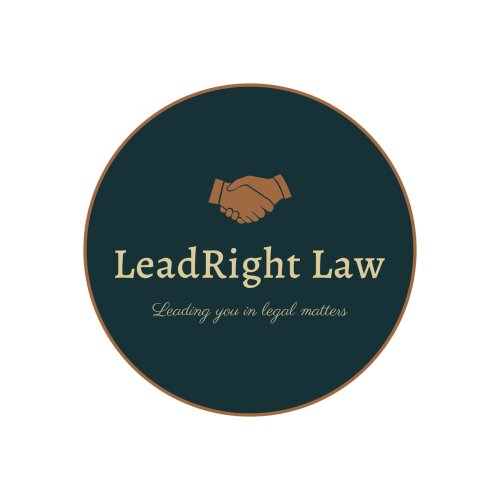Best Permanent Residency Lawyers in Toronto
Share your needs with us, get contacted by law firms.
Free. Takes 2 min.
List of the best lawyers in Toronto, Canada
About Permanent Residency Law in Toronto, Canada
Permanent Residency in Toronto, Canada refers to the legal status granted to individuals who are not Canadian citizens but have been authorized to live and work in Canada permanently. This status is usually granted based on various factors such as employment, family sponsorship, or through refugee status. Permanent residents enjoy many of the same rights and privileges as Canadian citizens, including access to healthcare and social benefits.
Why You May Need a Lawyer
Seeking legal advice from a lawyer specializing in Permanent Residency can be vital in certain situations. Here are some common scenarios where you may need legal assistance:
- Understanding complex immigration laws and regulations
- Preparing and submitting visa applications
- Challenging a visa refusal or deportation order
- Determining eligibility for Permanent Residency through various programs
- Family sponsorship and reunification
Local Laws Overview
There are several key aspects of local laws in Toronto, Canada that are particularly relevant to Permanent Residency:
- Express Entry Program: This program enables skilled workers to immigrate to Toronto, Canada.
- Provincial Nominee Program: This program allows provinces and territories within Canada, including Ontario, to nominate potential immigrants based on their specific skillset.
- Sponsorship Program: Canadian citizens and Permanent Residents can sponsor eligible family members to immigrate and become Permanent Residents in Toronto.
- Refugee Program: This program aims to protect refugees who have fled their home country due to well-founded fear of persecution.
Frequently Asked Questions
1. Can I work in Toronto, Canada as a Permanent Resident?
Yes, one of the privileges of being a Permanent Resident in Toronto, Canada is the ability to work and earn a living in the country. You will have the same employment rights as Canadian citizens.
2. How can I apply for Permanent Residency in Toronto, Canada?
You can apply for Permanent Residency in Toronto through various programs such as Express Entry, Provincial Nominee Programs, and Family Sponsorship. It is advisable to consult a lawyer experienced in immigration law to navigate the application process.
3. Can my family join me in Toronto as Permanent Residents?
If you are a Permanent Resident in Toronto, Canada, you may be eligible to sponsor certain family members to immigrate and become Permanent Residents as well. The eligibility criteria for sponsorship may differ depending on the specific situation, so consulting an immigration lawyer is recommended.
4. What happens if my Permanent Residency application is rejected?
If your Permanent Residency application is rejected, you still have options. It is possible to challenge the decision by filing an appeal or reapplying with additional information or evidence. Seeking legal advice from an immigration lawyer can greatly help in these circumstances.
5. Can I lose my Permanent Residency status in Toronto, Canada?
Yes, it is possible to lose your Permanent Residency status in certain situations. If you commit a serious criminal offense, fail to meet residency obligations, or obtain Permanent Residency through fraudulent means, the Government of Canada may revoke your status. It is important to abide by local laws and regulations to maintain your Permanent Residency.
Additional Resources
For more information and resources related to Permanent Residency in Toronto, Canada, consider consulting the following:
- Immigration Refugees and Citizenship Canada (IRCC): The official website of the Canadian government that provides information on immigration and citizenship. Their website offers detailed guides, application forms, and updates on immigration policies.
- Ontario Immigration: The website of the Ontario Government's Ministry of Citizenship and Immigration, providing information specific to immigration in the province.
- Canadian Bar Association: A professional association for lawyers in Canada that offers resources and a directory to find immigration lawyers specializing in Permanent Residency in Toronto.
Next Steps
If you require legal assistance regarding Permanent Residency in Toronto, Canada, it is recommended to contact a reputable immigration lawyer specializing in this field. They will be able to guide you through the process, provide personalized advice, and represent your interests if needed. Remember to gather all necessary documents and be prepared for your initial consultation to ensure a productive discussion with the lawyer.
Lawzana helps you find the best lawyers and law firms in Toronto through a curated and pre-screened list of qualified legal professionals. Our platform offers rankings and detailed profiles of attorneys and law firms, allowing you to compare based on practice areas, including Permanent Residency, experience, and client feedback.
Each profile includes a description of the firm's areas of practice, client reviews, team members and partners, year of establishment, spoken languages, office locations, contact information, social media presence, and any published articles or resources. Most firms on our platform speak English and are experienced in both local and international legal matters.
Get a quote from top-rated law firms in Toronto, Canada — quickly, securely, and without unnecessary hassle.
Disclaimer:
The information provided on this page is for general informational purposes only and does not constitute legal advice. While we strive to ensure the accuracy and relevance of the content, legal information may change over time, and interpretations of the law can vary. You should always consult with a qualified legal professional for advice specific to your situation.
We disclaim all liability for actions taken or not taken based on the content of this page. If you believe any information is incorrect or outdated, please contact us, and we will review and update it where appropriate.
















